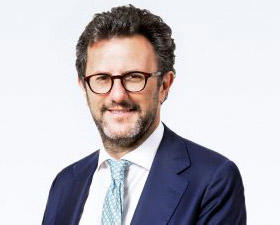It is crucial that, over the next decade, massive investments across all sectors are made to boost the transition to a sustainable economy. This transition will involve a large-scale transformation through the decarbonisation of industrial sectors and daily activities, digitalisation and electrification of consumption, as well as the adoption of a circular economy model.
Sustainable finance, both public and private, plays a vital role in unlocking funds and mobilising sustainable investments associated with stimulus packages and is, therefore, a key factor of the envisaged transition.
According to the European Commission, reaching the current 2030 climate and energy targets alone would require additional investments of approximately €260bn per year by 2030.
Does the market currently offer an adequate range of sustainable financial tools, such as debt and equity instruments? Despite the increasing interest of mainstream investors, the answer is no.
The financial system as a whole is not transitioning fast enough, partly due to the lack of homogeneous green classification systems and of structural financial incentives.
Enel has recently published a suite of key performance indicators, targets and principles that support the group in integrating sustainability across all its financing tools. The success achieved on the markets by the Enel Group’s sustainability-linked financing instruments highlights that this translates into financial value.
Along with the evolution of corporate and capital markets, the banking sector also needs to scale up efforts to integrate sustainability considerations into banks’ business models and to support the reallocation of capital needed to reach the goals set by the Paris Agreement.
Since this requires a change in culture and governance structures, so far, regulators have adopted a gradual approach to tackling environmental, social and governance (ESG) risks, and to assessing whether a dedicated prudential treatment of exposures related to sustainable assets would be justified.
However, there is a need to speed up improvements in the management of ESG factors by all actors in the financial system — including banks, rating agencies, investors, small and medium-sized enterprises, large corporations and their supply chain, and governments and authorities — and to promote regulatory convergence at the international level, preventing arbitrage opportunities.
ESG factors should no longer be perceived only as risk factors for the financial system, but rather as indicators of a more sustainable, and therefore safer, credit, which can therefore attract a more favourable prudential treatment.
We need an acceleration so that sustainable finance may go from niche to mainstream.
Michele Crisostomo is the chairman of Enel Group.












